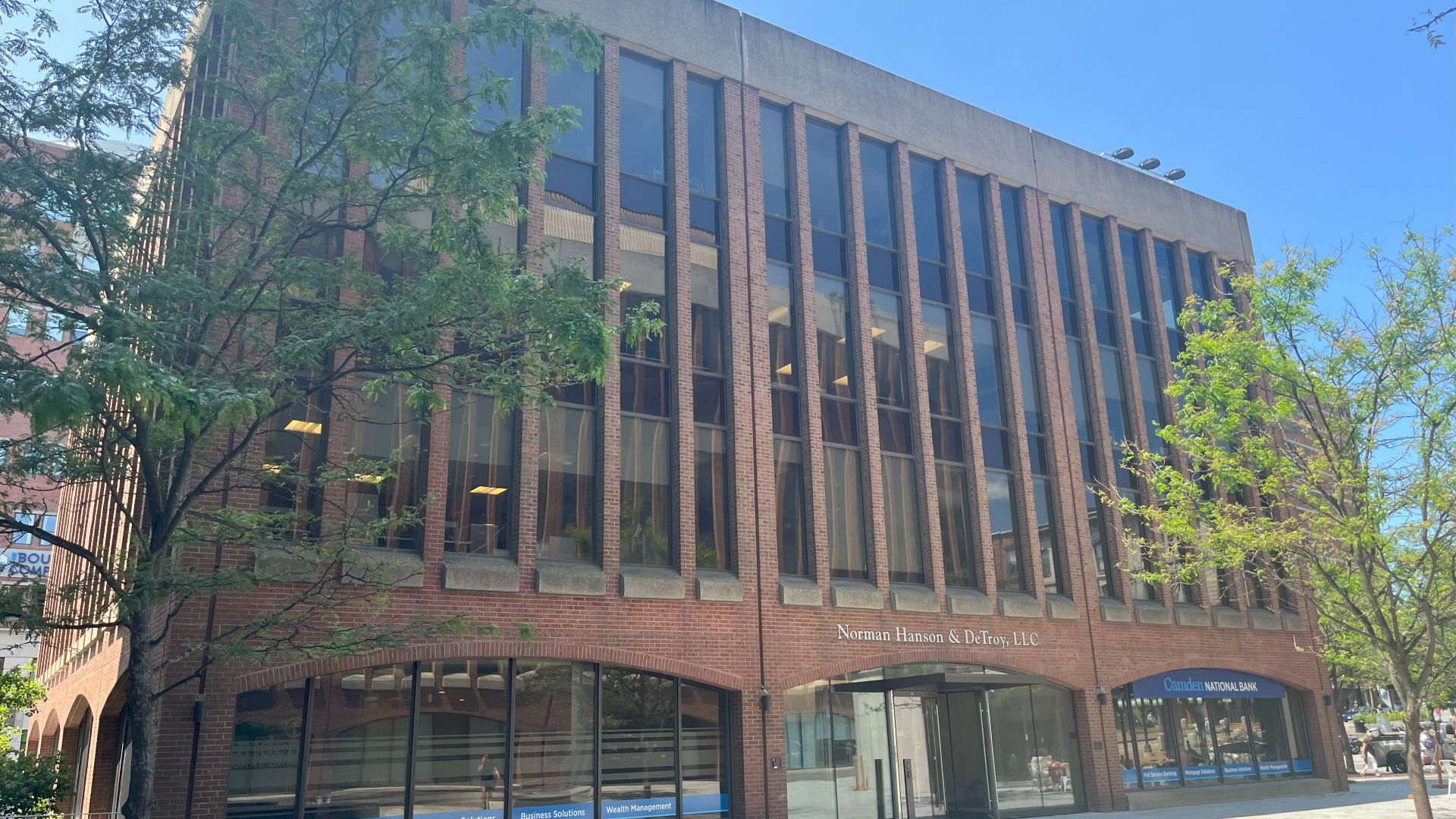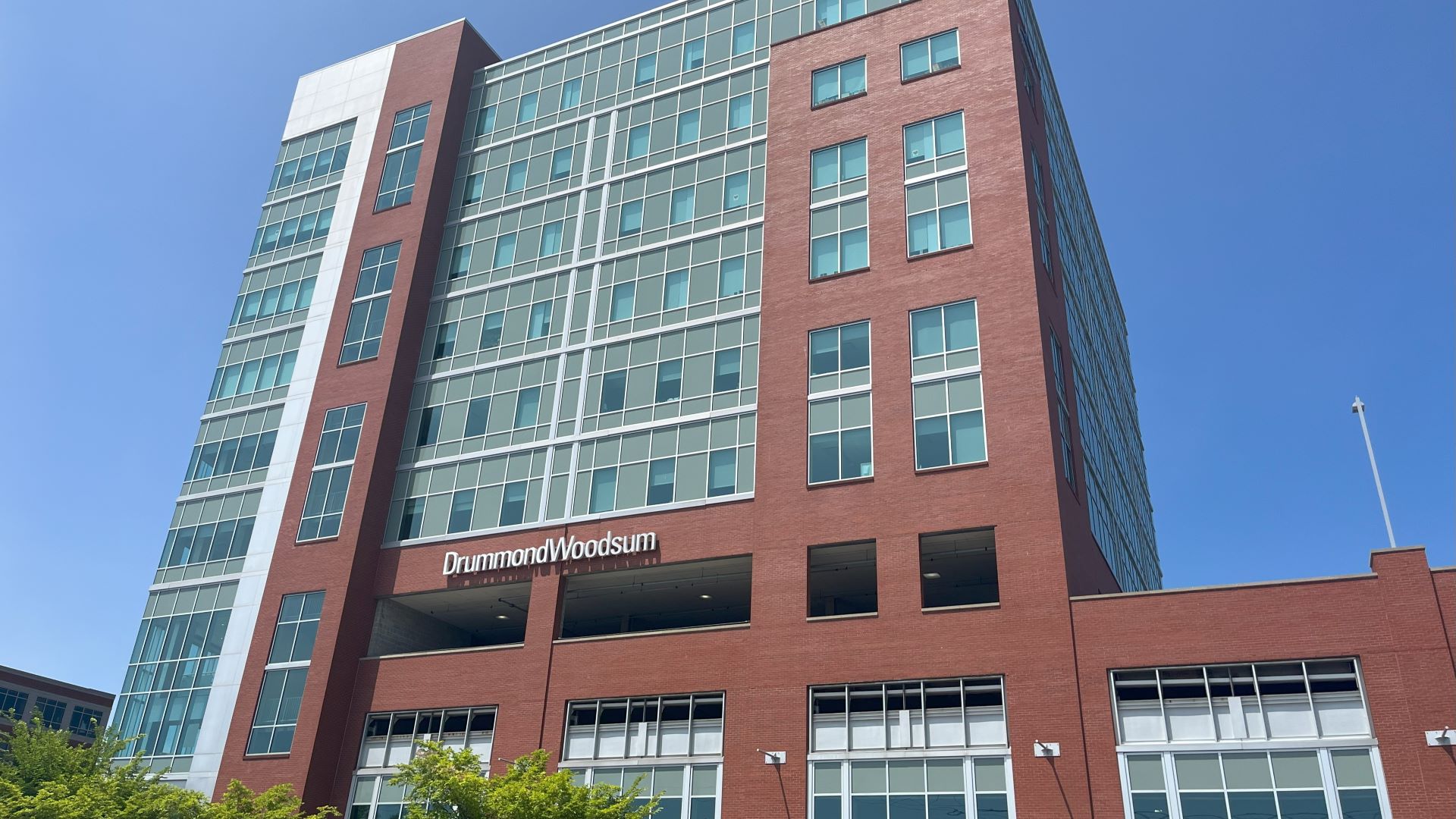In August 2023, Maine Supreme Court Chief Justice Valerie Stanfill wrote a letter to seven of the largest law firms in Maine, pleading for help.
The state’s indigent defense crisis “is worsening,” she wrote. Criminal defendants and parents in child protective cases were without attorneys.
“The need is dire,” Stanfill wrote. “Won’t you please help?”
For the most part, they haven’t.
A total of two attorneys from the seven firms — which collectively employ more than 450 lawyers — took indigent defense cases in the year since Stanfill’s letter, according to the Maine Commission on Public Defense Services. The commission, formerly named the Maine Commission on Indigent Legal Services, oversees regulation and payment for lawyers taking indigent cases.
One attorney from Drummond Woodsum took 14 criminal cases. Another from Bernstein Shur took 26 cases in 2023 before leaving to start a solo practice. Several others signed up with the commission but never took any cases.
“They’ve taken a token amount of cases,” MCPDS executive director Jim Billings said of the firms. “I think it is accurate to say that they have had little effect, if any.”
The crisis has worsened in the year since Stanfill’s letter, written when there were more than 100 indigent cases in need of attorneys. In late July, the tally was just short of 1,000.
Lawyers and legal observers across Maine mostly seem to agree the way out lies in a successful rollout of a statewide public defender system staffed with attorneys who specialize in criminal defense. That process has begun but likely won’t be completed until 2026. Maine is the last state to implement public defender offices.
Stanfill’s letter and the underwhelming response raise questions about whether Maine’s largest law firms — and members of the bar in general — have a responsibility to help ensure the state’s legal system is functioning when the state and its leaders have failed to do so.
The letter also prompted criminal defense attorneys to question if the legal community fully appreciates the specialized work they do, and whether attorneys with no criminal justice experience, some of whom have never been inside a courtroom, should be asked to represent clients whose liberty is at stake.
There are not enough attorneys in Maine to take all its pending indigent criminal cases. The problem has been exacerbated by pandemic backlogs: The number of statewide pending felony cases was 74 percent higher in May 2024 than the same month in 2019.
While inadequate indigent defense is hardly unique to Maine, the state has an average number of attorneys for its population. Maine ranks 26th in attorneys per capita, according to the American Bar Association. It has, for example, more lawyers per capita than New Hampshire but fewer than Vermont.
While the number of attorneys signed up to take indigent cases with the MCPDS fell from 421 to 305 between 2019 and 2023, those numbers represent a fraction of the roughly 4,000 attorneys active in the state.
The problem doesn’t seem to be a lack of attorneys, but a lack of attorneys capable of — and willing to — represent indigent clients.
That problem has forced judges to decide when the state’s failure to provide an attorney becomes a constitutional violation. If they do find a violation, they must decide what remedy, if any, to apply.
That was the dilemma Lewiston Judge Sarah Churchill faced last month. Leein Hinkley had been jailed for three weeks without bail and without an attorney. Churchill ruled his constitutional right to counsel had been violated, and lowered his bail in response, allowing him to leave Androscoggin County Jail.
A few days later, Hinkley violated his release conditions and went to an ex-girlfriend’s home in Auburn with a gun, then started a fire that killed a man and burned down several homes. Hinkley was killed during a shootout with police at the scene.
The case prompted criticism of Churchill by Gov. Janet Mills and the Maine Fraternal Order of Police.
This is all happening as a lawsuit, brought by the Maine ACLU on behalf of indigent defendants against the commission is moving toward a fall trial. The suit was initially filed against only the commission, but expanded to include the state of Maine and Attorney General Aaron Frey after Superior Court Justice Michaela Murphy rejected two settlement agreements. Neither proposed agreement provided a solution to the problems identified in the suit, she ruled.
Barbara Cardone, a spokesperson for the judiciary, said Stanfill was unavailable to speak about the response to her letter.
‘Like trying to drink water from a firehose’
Among the seven firms, only Norman, Hanson and DeTroy list criminal defense as an area of practice on its website. It did not take any indigent cases in response to Stanfill’s letter, according to the MCPDS.
The firms practice a range of non-criminal legal specialties, including corporate, real estate, bankruptcy, employment, estate planning, cannabis, immigration and intellectual property law, among others. They typically charge clients at least double the $150 an hour the state pays for indigent defense work.
Only three of the seven firms answered questions from the Monitor about their responses to Stanfill’s plea. Verrill Dana, Pierce Atwood, Eaton Peabody, and Norman, Hanson and DeTroy did not respond to repeated requests for comment.
Drummond Woodsum attorneys have taken 16 combined federal and state indigent criminal cases, said Bill Stockmeyer, the firm’s managing director, in an email. MCPDS data showed the firm has taken 14 state cases.
“Criminal defense and child protective cases require specialized knowledge and expertise,” Stockmeyer wrote. “There are a limited number of lawyers in our firm that meet MCPDS requirements to perform this work, and I can say that the great majority of those who do have answered the Chief Justice’s call.”
But MCPDS data shows that while four of the firm’s attorneys became rostered with the MCPDS to take cases after Stanfill’s letter, only one took indigent criminal cases. Another took two child protective appeals before the Supreme Judicial Court.
Stockmeyer also noted that 17 Drummond Woodsum lawyers have represented clients in protection from abuse cases in Lewiston District Court, and that the firm is one of the two “spearheading the Maine Supreme Judicial Court’s Small Claims Pilot Project where supervised student attorneys assist indigent individuals in their Smalls Claims Court matters.”
A Preti Flaherty spokesperson said the firm could not take indigent cases because it has dedicated “significant pro bono hours” to the lawsuit brought by the Maine ACLU against the commission.
“Given our ongoing role in the litigation, we do not feel it is appropriate to take MCILS/MCPDS cases at this time,” wrote Lisa Meyer, the firm’s chief marketing officer.
A week after Stanfill sent her letter, Bernstein Shur CEO Joan Fortin replied with a letter of her own, telling the chief justice that the firm “will certainly step forward to do our part to help.”
But Fortin also told Stanfill that the indigent defense crisis required “urgent and fundamental reform.”
“We understand that any assistance that we provide is not intended to be, and cannot be, a long-term solution,” Fortin wrote. “As lawyers, judges and Maine citizens, we cannot permit basic human dignity and fundamental rights to counsel to be afforded only to those who can afford to pay for them.”

Despite Fortin’s pledge, MCPDS data showed that just one Bernstein Shur attorney completed the process to take MCPDS cases.
That attorney was Will McCartney.
At the time, the young lawyer was primarily practicing real estate and commercial law as a Bernstein Shur associate, but his goal was always to practice criminal law. After Stanfill’s call, the firm gave him permission to start taking indigent cases.
But in the hours and days after signing up with the commission in November to take cases in a few different courts, he was overwhelmed by the number he was assigned.
“I put my name down and then all of a sudden I’m underwater, like trying to drink water from a firehose with all these cases,” McCartney said.
Despite the initial shock, he liked the work so much that a few months later, he left Bernstein Shur and opened his own practice in Brunswick dedicated solely to indigent criminal defense.
“It gave me the confidence to take that plunge,” he said.
‘Not just a dabbling endeavor’
Recent data indicates more attorneys are signing up for indigent work, due in part to a March 2023 increase in the hourly compensation rate from $80 to $150. The commission also implemented a public loan forgiveness program last year and just this week loosened some eligibility requirements.
Last year, attorneys submitted 109 applications for the MCPDS program. In the first six months of this year, they submitted 84, according to MCPDS materials distributed in advance of its July 22 meeting.
The increase hasn’t stopped the number of combined criminal and child protection cases without an attorney from soaring 260 percent in 2024.
MCPDS has two tiers of qualifications for lawyers on its rosters. The lower-tier attorneys are qualified to represent clients in lower-level crimes, as well as civil commitment or involuntary medication issues. To be eligible, attorneys must complete a two-day criminal law training, among other qualifications.
The higher tier includes specialized rosters, which require experience specific to more serious charges like homicide, sex offenses, major felonies and domestic violence cases.
While attorneys from the larger firms may not have the experience to qualify for the more specialized cases, Billings of the MCPDS noted that more than half the criminal cases without an attorney fall in the first category.
“Over 50% of those are cases that don’t require one of our specialized panels,” Billings said. “So anyone who’s admitted and has taken our minimum standards training, or has no prior criminal experience, could take a lot of those cases.”
But criminal defense attorneys warn that their work is specialized, and not just any lawyer can step in and provide quality legal representation that ensures the rights of the accused are protected.
Tina Nadeau, executive director of the Maine Association of Criminal Defense Lawyers, said Stanfill’s letter “shows a fundamental misunderstanding of the work that we do.”
“It’s necessary that we have people who are extremely specialized and extremely experienced doing this work because the stakes are the loss of liberty,” said Nadeau, who takes many indigent cases as part of her practice.
“I think to the law firms’ credit, they recognize this is not just a dabbling endeavor,” said Nadeau.
Growing complexity of criminal cases
Despite the response to the letter, the firms generally do provide some free legal help to those who can’t afford it.
The state is obligated to provide counsel to criminal defendants and parents in child protective proceedings who cannot afford an attorney. But it has no obligation to provide attorneys in civil matters, such as evictions and protection from abuse proceedings.
The firms identified in Stanfill’s letter have made large contributions to those who cannot afford a lawyer in civil cases, said Deirdre Smith, executive director of the Maine Volunteer Lawyers Project.
“Every single one of them has numerous attorneys who step up, who assist and provide pro bono help through the Volunteer Lawyers Project, as well as through other legal aid providers,” Smith said.

In past decades, criminal defense was less complicated, and it was common for firms and lawyers to take cases for little or no money as part of their civic responsibility.
Peter Murray, a Portland-based attorney, has practiced law for 55 years. When he started as a trial lawyer, he took criminal cases even though it wasn’t his specialty. Other trial lawyers would do the same. But handling criminal cases has become “infinitely more complex in the last 50 years,” he said.
Part of the reason is the numerous types of charges in a single case, Murray said. But the primary reason is cases rarely go to trial anymore. They end in plea bargains, meaning much of the criminal defense work is done outside a courtroom.
The work requires knowing available diversion and treatment programs and their entry qualifications, as well as familiarity with judges and prosecutors, Murray said.
“You really need to know the ground, which we didn’t need to know in my day because it was much more simple,” Murray said.
“I think that the idea that fat cat lawyer law firms can send their trial lawyers into court to defend these criminal cases is not realistic. They’d be unqualified to do it.”







